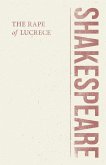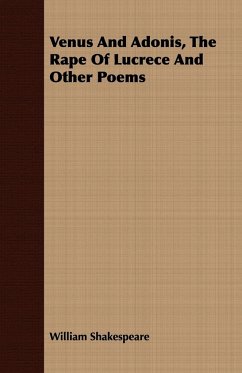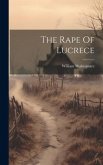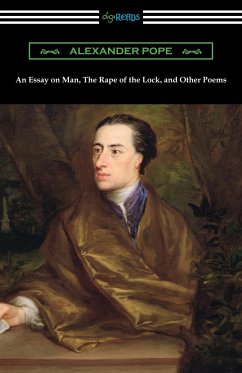The Rape of Lucrece (1594) is a narrative poem by William Shakespeare about the legendary Roman noblewoman Lucretia. In his previous narrative poem, Venus and Adonis (1593), Shakespeare had included a dedicatory letter to his patron, the Earl of Southampton, in which he promised to compose a "graver labour". Accordingly, The Rape of Lucrece has a serious tone throughout.The poem begins with a prose dedication addressed directly to the Earl of Southampton, which begins, "The love I dedicate to your Lordship is without end." It refers to the poem as a pamphlet, which describes the form of its original publication of 1594.The dedication is followed by "The Argument", a prose paragraph that summarizes the historical context of the poem, which begins in media res.The poem contains 1,855 lines, divided into 265 stanzas of seven lines each. The meter of each line is iambic pentameter. The rhyme scheme for each stanza is ABABBCC, a format known as "rhyme royal", which has been used by Geoffrey Chaucer, John Milton and John Masefield.One evening, at the town of Ardea, where a battle is being fought, two leading Roman soldiers, Tarquin and Collatine, are talking. Collatine describes his wife, Lucrece, in glowing terms-she is beautiful and chaste. The following morning, Tarquin travels to Collatine's home. Lucrece welcomes him. Tarquin entertains her with stories of her husband's deeds on the battlefield.Tarquin spends the night, and is torn by his desire for Lucrece. His desire overcomes him, and he goes to Lucrece's chamber, where she is asleep. He reaches out and touches her breast, which wakes her up. She is afraid. He tells her that she must give in to him, or else he will kill her. He also threatens to cause her dishonor by murdering a slave and placing the two bodies in each other's arms, and then he would claim that he killed her because he discovered them in this embrace. If she would give in to him, Tarquin promises to keep it all secret. Lucrece pleads with him to no avail. He rapes her.Full of shame and guilt, Tarquin sneaks away. Lucrece is devastated, furious and suicidal. She writes a letter to her husband, asking him to come home. When Collatine gets home, Lucrece tells him the whole story, but doesn't say who did it. Collatine demands to know. Before she tells him, Lucrece gets the soldiers, who are also there, to promise to avenge this crime. She then tells her husband who did it, and she immediately pulls out a knife, stabs herself and dies.
Hinweis: Dieser Artikel kann nur an eine deutsche Lieferadresse ausgeliefert werden.
Hinweis: Dieser Artikel kann nur an eine deutsche Lieferadresse ausgeliefert werden.









